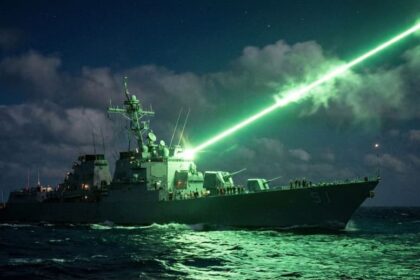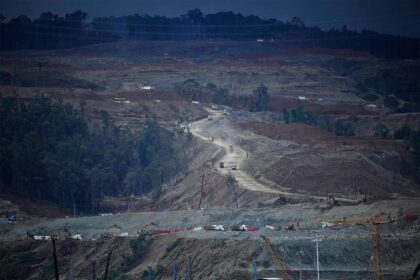Europe’s rare intervention in a critical chip supplier
The Netherlands has taken the rare step of asserting direct control over major decisions at Nexperia, a Dutch headquartered semiconductor maker owned by China’s Wingtech Technology. Citing threats to Dutch and European economic security and to the safeguarding of crucial technological knowledge, the Ministry of Economic Affairs invoked the Goods Availability Act, an emergency era law that allows government intervention in private companies when the supply of essential goods is at risk. The order does not nationalize Nexperia. It gives the state the power for one year to block or reverse management decisions that could harm the company’s continuity in the Netherlands or Europe, or jeopardize access to its chips in an emergency. Daily production is allowed to continue.
- Europe’s rare intervention in a critical chip supplier
- What drove the decision in The Hague
- Nexperia’s strategic footprint
- The legal tool the Netherlands used
- The US angle and the export control squeeze
- China responds and the risk to supply chains
- Governance, courts and corporate control
- What this means for European industry and investors
- How this fits into the wider chips policy
- Next steps and scenarios
- The Bottom Line
Nexperia is a key supplier of the small, mature technology chips that keep modern cars, appliances and consumer electronics running. These components are rarely in the spotlight, yet shortages can idle entire assembly lines. Dutch officials say the intervention aims to reduce the risk that governance problems, geopolitical pressure or abrupt export restrictions could interrupt European supply. The step instantly became a flashpoint in the widening technology rift between China and the West, with Wingtech condemning the move and Beijing responding with new export limits on Nexperia operations in China.
The decision followed a separate court action in Amsterdam that suspended Wingtech’s chairman, Zhang Xuezheng, from Nexperia’s board and appointed Dutch businessman Guido Dierick with a deciding vote. Control of most Nexperia shares was transferred to a Dutch lawyer as custodian while the investigation proceeds. Under the government order, Nexperia cannot relocate assets, change key personnel or make major transactions without approval for up to one year. The company and involved parties can seek judicial review, and Nexperia says routine operations continue.
What drove the decision in The Hague
Officials described “serious governance shortcomings” and acute signals that Nexperia’s continuity in the Netherlands could be at risk. The Ministry of Economic Affairs said it acted to safeguard both the supply of critical chips and the knowledge base tied to Nexperia’s Dutch and European operations. The order is framed as a narrowly tailored, time limited measure. It is, however, highly unusual in a market oriented country where direct intervention in corporate decision making is rare.
Dutch Minister of Economic Affairs Vincent Karremans defended the step as an act to prevent supply disruptions and protect the economy. He referenced urgent signals that the firm’s internal management issues could spill into the broader supply chain.
“I recently received serious and urgent signals that the company has major shortcomings that could jeopardise security of supply. This would have major consequences for the European and Dutch economies.”
The ministry did not publish detailed evidence of the alleged shortcomings. That gap has fueled criticism from Wingtech and Chinese industry bodies, which say the Netherlands is applying a political lens to what should be a commercial matter. Dutch officials counter that the law requires swift action when essential goods may be at risk, and that production is deliberately kept running while governance is addressed.
Nexperia’s strategic footprint
Headquartered in Nijmegen, Nexperia employs about 12,500 people globally and supplies billions of components a year. Its catalog includes diodes, transistors, logic devices, power management chips and other foundational parts. The company is also investing in wide bandgap semiconductors such as silicon carbide and gallium nitride. These materials handle high voltages and temperatures better than traditional silicon, which makes them attractive for electric vehicles, fast charging, renewable power conversion and data center power electronics.
Nexperia’s European manufacturing and development base is significant. It operates facilities in the Netherlands and Germany, and it owns a site in Stockport in the United Kingdom. In 2022, British authorities ordered Nexperia to sell its stake in the Newport Wafer Fab in Wales over national security concerns, underscoring how scrutiny of Chinese owned chip assets has broadened across Europe.
Why basic chips can stop entire industries
The world saw the leverage of “simple” chips during the pandemic era shortage. Cars, kitchen appliances and network equipment stalled, not because of a lack of the most advanced processors, but due to shortages of mature nodes like power management integrated circuits, voltage regulators and microcontrollers. Nexperia is a major supplier in this space. If a supplier of these parts faces sudden export constraints or internal disruption, second source options can be scarce and lead times long. Policymakers view that exposure as a risk to industrial output and jobs.
The legal tool the Netherlands used
The Goods Availability Act is a Cold War era law designed to ensure the supply of critical goods during exceptional circumstances. It allows the government to impose conditions on companies to keep essential products available, without taking ownership. In this case, the order allows the minister to veto or unwind decisions that could undermine the availability of Nexperia’s chips or the continuity of its Dutch and European operations. The ministry emphasized that production should continue and that the step is temporary and targeted.
This use of the law marks a first in the Dutch chip sector. It follows a pattern across advanced economies of new legal frameworks crafted for economic security. The Netherlands has already tightened export permissions for advanced chipmaking equipment. European Union institutions are also aligning on common risk assessments and tools to protect technology and supply chains while trying to keep markets open.
The US angle and the export control squeeze
Wingtech was placed on the US entity list in December 2024, which restricts access to American goods and technology. On September 30 of this year, Washington extended those restrictions to affiliates at least 50 percent owned by listed companies. That change pulled Nexperia under the umbrella of US export controls, complicating its access to certain US technology and creating uncertainty for customers in Europe.
In parallel, court filings in the Netherlands disclosed meeting minutes showing that US officials raised specific concerns about Nexperia’s leadership. According to the documents, the US Bureau of International Security and Nonproliferation told Dutch counterparts in June that keeping Wingtech founder Zhang Xuezheng as Nexperia’s chief executive would likely prevent any exemption from US export controls.
“The fact that the company’s CEO is still the same Chinese owner is problematic. It is almost certain that the CEO will have to be replaced.”
Dutch officials say the Netherlands makes its own decisions and that there was no foreign involvement in triggering the intervention. Even so, the export control environment adds pressure. If a supplier is suddenly cut off from tools, software or components that involve US technology, European customers can face supply gaps. Dutch authorities appear to be trying to reduce that risk by keeping production going under tighter oversight while governance issues are addressed.
China responds and the risk to supply chains
Beijing responded by imposing export controls on Nexperia China and its subcontractors, preventing the export of certain components assembled in China. The products are considered dual use, meaning they have both civilian and military applications under Chinese rules. The restrictions affect output from at least one plant in Guangdong and add new uncertainty for European automakers and electronics firms that rely on those parts.
Wingtech has sharply criticized the Dutch measure. In a stock filing, the company said the step was political and went beyond a fact based assessment of risk.
In a filing to investors, Wingtech stated its position bluntly.
“This is excessive interference driven by geopolitical bias.”
Chinese industry groups also blasted the decision. The China Semiconductor Industry Association said the Dutch order signals unfair treatment of Chinese backed firms and risks damaging trust in cross border supply chains.
“The steps are selective and discriminatory against overseas branches of Chinese enterprises and undermine open trade.”
The immediate market reaction reflected the stakes. Wingtech’s shares fell by about 10 percent in Shanghai after the announcement. Nexperia has said it complies with all laws, export controls and sanctions and that it remains in contact with authorities. The company said its day to day operations continue.
Governance, courts and corporate control
The Dutch Enterprise Chamber, a specialized court for corporate disputes, played a central role. It suspended Zhang from Nexperia’s board, appointed Guido Dierick with a deciding vote and transferred control of most shares to a court appointed custodian. The court said there were well founded reasons to doubt whether correct policies and practices were being pursued. Those steps are designed to stabilize management and prevent rapid changes in ownership or assets during the investigation.
Separately, the government’s order bars major strategic moves for one year unless approved. That includes selling assets, relocating key operations or reorganizing leadership. The combination of court supervision and ministerial veto power is intended to keep the company operational while limiting actions that could compromise supply, intellectual property or the firm’s European base.
What this means for European industry and investors
The automotive sector is the most exposed to any disruption at Nexperia. Even a brief interruption of basic chips can ripple through car assembly, where just in time logistics depend on predictable flows of components. For now, Dutch officials insist production continues and the order is targeted to avoid supply shocks. China’s export controls add a second front of uncertainty, however, since they affect shipments from Nexperia China and partners. Some European buyers are already assessing inventories and alternative sourcing for specific parts with fewer substitutes.
Manufacturers can mitigate risk through dual sourcing, redesigns that allow use of equivalent parts and by negotiating priority with suppliers. Those steps take time and increase costs. That is one reason governments have become more sensitive to concentrated supply in mature chips. If one company’s governance or export permissions are in doubt, entire production lines in unrelated industries can pause. The Netherlands is betting that tight oversight of Nexperia, rather than a forced shutdown or expropriation, will steady supply.
For investors, the episode shows how economic security laws can override traditional market assumptions. Europe remains open to foreign capital, yet the policy environment now includes tools that can temporarily curb shareholder control in specific cases tied to critical goods. Confidence partly depends on whether interventions are explained clearly, time limited and subject to judicial review. The government says all three guardrails apply here.
How this fits into the wider chips policy
European governments have built new policy tools since the pandemic highlighted supply vulnerabilities. The EU Chips Act aims to expand production and research within Europe, shorten supply lines and create incentives for advanced and mature chip investments. Member states are also refining screening rules for foreign investments and for the security of technology, often in coordination with partners like the United States and Japan.
The Netherlands has already restricted certain exports by ASML, the Dutch maker of chipmaking equipment, to China. Those decisions are separate from Nexperia but form part of a larger shift. Policymakers want to keep markets open yet preserve the ability to act if essential supplies are at risk. The Nexperia case shows how that balance can move from export licensing into direct oversight of corporate governance when officials see a threat to continuity.
Next steps and scenarios
The coming months will turn on four tracks. First, appeals and court proceedings in Amsterdam will determine whether the current supervisory measures stand and whether any new board changes are required. Second, the Ministry of Economic Affairs will decide which company decisions can go ahead and which must be paused or reversed under the order. Third, Wingtech and Nexperia will keep seeking ways to restore access to restricted technology and markets, including dialogue with US agencies about the entity list and with Chinese regulators about export permissions. Fourth, customers will manage inventories and qualify alternate parts to cushion any shock.
One possible outcome is a governance reset at Nexperia that satisfies Dutch authorities and reduces the risk of sudden export barriers. That could include fresh independent oversight, clearer ring fencing of European operations and commitments on location of assets and knowledge. Another possibility is a corporate restructuring that separates some activities to navigate export rules. A more severe path, which officials say they intend to avoid, would be prolonged constraints that reduce output in Europe and prompt long term re sourcing by major buyers.
Either way, the case will be watched across the sector. If the intervention keeps factory lines fed while courts and ministries resolve management issues, it may become a template for handling critical suppliers caught in geopolitical crosscurrents. If it triggers lasting supply problems or heavy retaliation, it could harden positions in global trade and make cross border investment in semiconductors even more complex.
The Bottom Line
- The Netherlands used the Goods Availability Act to take temporary control over decisions at Nexperia for one year while keeping production running.
- Officials cited serious governance shortcomings and the need to safeguard European supply of basic chips and technological knowledge.
- A Dutch court suspended Wingtech’s chairman from Nexperia’s board, appointed a Dutch executive with a deciding vote and placed most shares under a custodian.
- US export controls on Wingtech and affiliates tightened at the end of September, and court filings show US officials had pushed for a leadership change at Nexperia.
- China imposed export controls on Nexperia China and subcontractors, adding uncertainty for European customers in autos and electronics.
- Wingtech called the Dutch action excessive interference, while a Chinese industry group labeled it selective and discriminatory.
- The order aims to avoid supply shocks while governance issues are addressed, but buyers are assessing alternatives in case of delays.
- The episode highlights Europe’s growing use of economic security tools and the pressure on chip supply chains amid wider geopolitical tensions.












